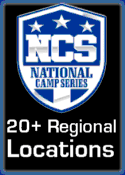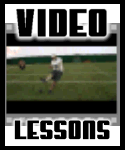|
GUEST EXPERT ARTICLE
The world of college football recruiting has gotten very competitive. It is competitive both from a player's perspective and from the school's perspective. There are numerous combines, camps and services available that all claim to be the one that can help you "get noticed." Football programs also struggle in this environment. With coaches jobs becoming less secure there is a need to find the best talent available so that teams can "win now." Therefore, college programs compete aggressively for the top recruits. Colleges send out hundreds of recruiting letters. They are also bombarded with letters and video tapes from high school players. All of this makes it tough for a specialist to get noticed. The question is: as a specialist, how do you get noticed by these programs? The purpose of this manual is to help you navigate the process of finding a college football program that fits your needs as a student-athlete.
My Story: My name is Doug Brien and I kicked in the NFL for the past twelve years. Before that I kicked at U.C. Berkeley. I started for three of those years. I spent the first two as a walk-on waiting for my turn to compete for the job. I had to walk-on because I only played high school football for one year. I played soccer growing up and didn't kick until my dad finally convinced me to try it my senior year; that turned out to be some good advice.
Even though I ended up playing for a long time in the NFL, I started out in the same position as many of you. When I finished high school I was not widely recruited and I was trying to figure out the best way to play in college. I got two offers to walk-on and play both football and soccer. However, these offers came from smaller schools which did not have Division I football programs or great academic programs. My goal was to get into a university that I would not have been able to get into without sports. I also wanted to play at the Division I level. Even though I knew it was unlikely I would find a school with both of those criteria, I was going to try.
First, I asked my high school coach to talk to college coaches. This was an uphill battle; I had kicked for only one year and made 4-6 attempts with a long field goal of twenty eight yards - not exactly exciting statistics. However, I did play for a very good high school program (De La Salle High School) in Concord, CA and I had done a very good job of kicking off. Fortunately, the coach from Cal noticed my kickoffs in the North Coast Section finals. He recommended me for the North All-Star team in the North vs. South Shrine All-Star game. That was huge for me! After that I asked my high school coach to talk to Cal about me playing for them. Cal is a Division I program in the PAC 10 and (more importantly) one of the top universities in the country. Thirteen students with a 4.0 at my high school did not get in to Cal, so if I could get in with a 3.7 G.P.A. and strong kicking leg, I would do it.
Cal already had an All-American kicker/punter that was going into his junior year. That was not good news. However, Cal said they would take me as a walk-on, I could learn for two years, and then I would compete for the starting job when Robbie Keen graduated. They told me if I won the job, they would give me a full-ride athletic scholarship! I immediately said "yes" and told the other coaches I had been in contact with that I no longer was looking for a school. I was set to be a California Golden Bear!
Even though it was very hard to be a walk-on, it turned out to be the best thing for me. By spending two years under Robbie Keen, I learned a tremendous amount about what it took to succeed at the Division I level. If I had played right out of high school I would probably have done a horrible job and probably would not have received a scholarship. Patience paid off for me.
Strategies for Getting Noticed: The best advice I can offer to any high school specialist is: perform really well in high school and have your coach aggressively market you to college programs. For those of you who have the opportunity to showcase your talents and capitalize on it - you are the lucky ones. For those players that leave high school as relative unknowns, you will need to study this manual and do everything you can to get noticed.
One college recruiting coordinator told me that the good news for kickers, punters and long snappers is that "if you can do it in high school, you can do it in college." At other positions there are always questions about whether a player has the speed or size to compete against college athletes. For specialists, you are primarily competing against yourself. It doesn't matter how big or strong you are (except for snappers, for whom this is somewhat important). If you have the ability to perform well in high school, you will be able to compete in college because no one will stop you except yourself. The key is for you to perform well in high school and let college coaches know about it!
First, as a kicker, punter or long snapper the odds are not in your favor of receiving a college scholarship. It is even less likely that you will be among the top prized recruits that most college programs will pursue. As a specialist you must stay patient and create a winning recruiting strategy. You need to open your mind to the possibility of walking-on.
The Walk-On Strategy: A college walk-on is a player who has been invited to attend a school and play for a team without an athletic scholarship. This is by far the most common route for most specialists. I was a college walk-on and so were numerous other NFL specialists that I played with. If you believe in your talents, have patience and choose the correct football program, walking-on can be a great strategy.
As a walk-on you will need to prove yourself. Not many specialists get the chance to really prove themselves in high school. This is part of the reason it is so hard for college coaches to recruit high school specialists - they have not seen enough of them to know if they can perform at the college levels. The other reason is that most college coaches do not know much about specialists. Therefore, it is very hard for them to accurately evaluate your talent. College coaches have a limited number of scholarships so they are often hesitant to use one on a specialist. Many of these schools like to accept walk-ons on a yearly basis so they always have a couple of good specialists available to compete for jobs. This way, the best man wins and the coach will offer that kicker, punter or snapper a scholarship after they have earned a starting position.
Even receiving a walk-on invitation for a high school specialist is a huge win. If you have this opportunity you should consider it an honor. Most of you will have to market yourselves to many schools in hopes of one inviting you to try-out for the team.
Marketing Strategies: There are a number of ways to market yourself to college programs. Some of these methods vary by which type of college program you are pursuing: Division I, IAA, II, III, NAIA or Junior College. However, most of the methods are universal. Here are the strategies I recommend employing:
Deciding to focus on a certain level football program is especially useful if you are pursuing lower division schools. Those schools often look for the kids left over from the Division I process or look at the kids who send them information. Where many Division I schools painfully work their way through hundreds of tapes and letters, lower division schools often look very carefully at the letters and tapes they receive. If you market yourself well to those lower division schools and you have sufficient talent, you will have an excellent chance to play there.
Almost every school has a football camp for high school kids. Once you determine where you want to play, sign up for their camp in the summer. If you cannot afford to attend them all, sign up for your top choice.
Each summer Cal hosts a Kicking, Punting and Long Snapping Camp. This lets the coaching staff get a good look at the high school kids that attend. On the last day of the camp an intense competition is held in Memorial Stadium using stadium noise. The coaches want to see who can perform well in a pressure-filled environment. Last year Cal offered one scholarship and at least two kids the opportunity to walk-on after seeing them perform at camp. Attending a summer camp is by far the best way to get noticed by a school.
The timing of our events works out well with the college recruiting schedule. College coaches will have access to your "regional" profile on the NCS right after your junior season. The semi-finals happen right before your senior season begins so college coaches will have access to that video right before your senior season begins. This will give the college coaches a good idea of what kind of kicker, punter or snapper you are. If they are interested, they will be able to watch you, communicate with you and follow you throughout your senior season and into the National Finals in January. You can store not only your combine footage online, but you can add your game footage to your profile as well.
Coaches like to see two types of film from specialists: continuous practice footage and game film. In both instances they want to see the footage in its entirety. They do not want a "highlight tape." Everyone looks good in his "highlight tape." Coaches want to see you miss kicks or snaps and then see how you respond. This is why you should send an entire game in or an entire practice session without any editing. They also want the picture to be clear and to show you throughout your entire kick, punt or snap so that they can assess your technique.
Showing footage from NCS is perhaps the best type of film to send to schools because it is a pressure situation and it is professionally filmed and housed online. NCS offering is perfect for creating quality footage to demonstrate your talent to college coaches. NCS coaches will see you perform under pressure with no "do-overs" and every kick will be hosted online for their viewing. Your performance can be watched in perfect clarity, frame-by-frame from the comfort of their desk. Now that is recruitment in fast-forward! I highly recommend you use NCS as a way to demonstrate your kicking and snapping ability to college coaches. After all, we created NCS with you in mind.
Halfway through your senior year you should send the schools on your list some updated video from the first half of your season. When your senior season is over, you should send the video from the second half of the year.
The letter should not be too long. Don't spend pages telling about how badly you want to play at a particular school. You should be concise. Tell the school about your high school career, include your academic information, your contact information, the contact information for your high school and kicking, punting or snapping coach as well as why you want to attend the school. Be creative - try to make your letter and video stand out.
You should also try to have your high school coach and/or kicking, punting or snapping coach call some schools as well. This can be especially helpful since they can give you an honest assessment. Remember, your coach has to be honest with schools or he will lose his credibility with them and hurt the chances or future recruits. So, if you think any of your coaches will give you a good recommendation you should work hard to get them to write a letter and/or call. I think that Special Teams coaches like to hear from outside kicking coaches (the guy that runs the summer camp you attend) because they are usually very knowledgeable about kicking and have seen the talent that is out there.
I hope that you find this manual helpful along this difficult but exciting journey. Remember to be patient and realistic throughout the process. If you have any questions, don't be afraid to email me at dougbrien@kicking.com and I will offer any help I can. Learn more about Doug Brien >>> |

 How to Get Noticed by College Football Programs
How to Get Noticed by College Football Programs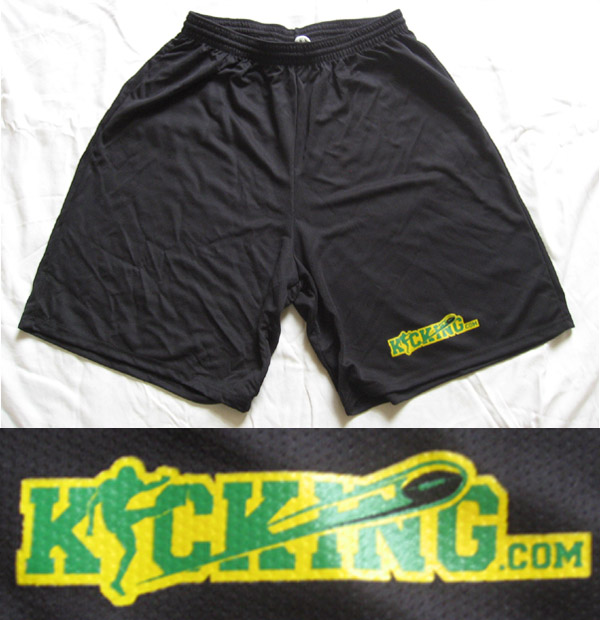
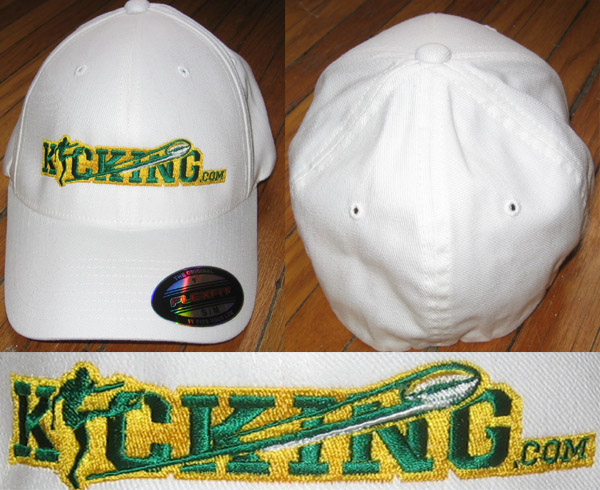
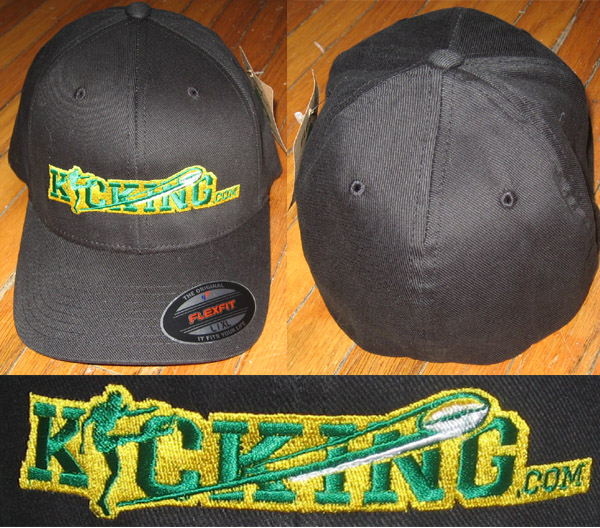
 Doug and Tommy's Frequently Asked Questions
Doug and Tommy's Frequently Asked Questions
